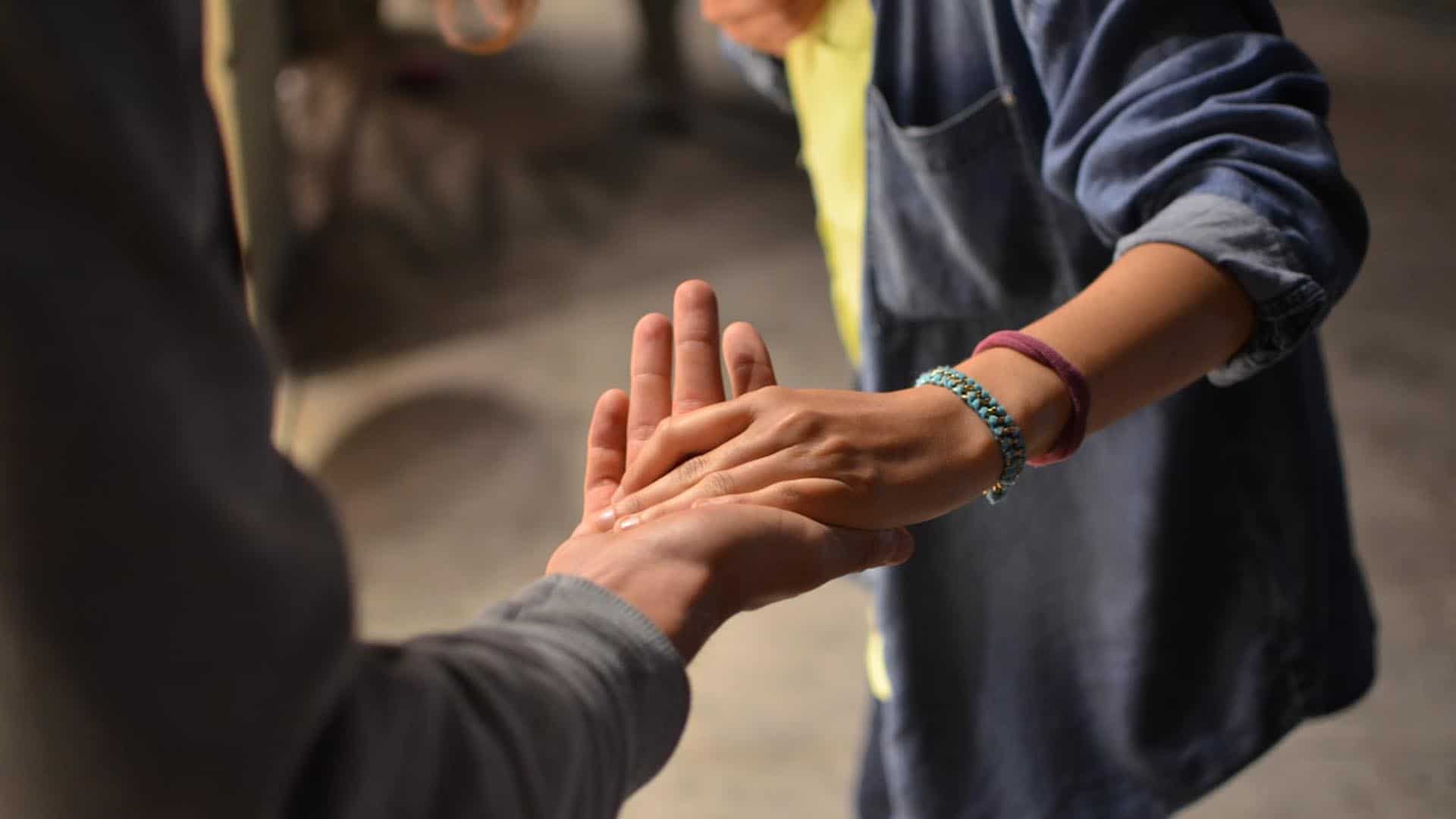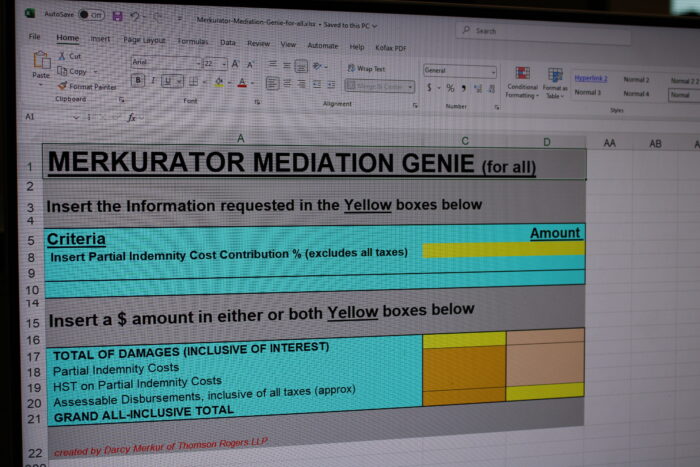Options To Sue In Negligence After Taking Care Of An Injured Family Member
March 16, 2021

Often victims injured in slip and falls, trip and falls, assaults, and motor vehicle accidents are unable to complete personal care activities and housekeeping on their own. These victims often also do not have the money available to pay personal support workers or other help to assist with these activities.
In the absence of paid help, the victim’s family members often take care of the injured victim. Family members often help with personal care and housekeeping activities such as bathing, cooking, cleaning, laundry, sweeping, dusting, support, and even monitoring the victim if they are at risk of falls in the home.
There are two avenues in a personal injury claim to recover money for a family member’s assistance with personal care and housekeeping tasks. The first, is a claim made by the family member under the Family Law Act, R.S.O. 1990, c. F.3. The second is a claim by the injured victim for the care provided to them by the family member.
1. A claim by the family member.
The family member of an injured victim can sue for money for a number of different kinds of losses stemming from a victim’s personal injury. These losses are described at s. 61 of the Family Law Act. A family member is defined as the victim’s spouse (as defined in Part III of the Family Law Act), children, grandchildren, parents, grandparents, brothers and sisters.
This article will focus solely on claims under s. 61(2)(d) of the Family Law Act which states:
where, as a result of the injury, the [family member] provides nursing, housekeeping or other services for the person, a reasonable allowance for loss of income or the value of the services [can be claimed]. [my additions]
It may be helpful to explain s. 61(2)(d) in greater detail. If the personal injury action succeeds at trial, the family member claiming under the Family Law Act will be compensated for the following services:
- nursing services they performed for the victim;
- housekeeping services they performed for the victim; and/or
- other services they performed for the victim.
The amount of money the claiming family member will be compensated with for performing these services will be calculated in one of the two following ways:
- a reasonable allowance for income the family member lost taking time off from employment to care for the victim; or
- money for the value of the services the family member performed
Two examples may help illustrate these scenarios.
In example one, a mother takes one day each week off from work unpaid to help her injured daughter bathe, cut her nails, and comb her hair. The mother will be compensated (reasonably) for the pay she would have received if she did not take the day off of work to perform these services for her daughter.
In example two, a retired grandmother visits her injured grandson and spends five hours sweeping, doing laundry, cleaning dishes, and taking out garbage. The grandmother will be compensated for the value of these housekeeping services as if they were performed by a personal support worker. In some cases a Court will determine a general amount for the services provided rather than calculate an exact amount by multiplying a personal support worker hourly wage by the number of hours of services provided.
It is important to note, however, that the injured victim must be in need of these services before a family member will be compensated for providing them. Medical evidence that the victim could not perform these services, and thus, was in need of someone to perform these services is necessary before a family member will be able to claim for services provided.
When a family member makes a Family Law Act, claim, the family member will be paid for the services they provided if they are successful at trial.
There are other types of damages that a family member can sue for related to a victim’s injuries under the Family Law Act, which are not covered in this article. It may be helpful to consult a lawyer to learn the full potential of your Family Law Act claim.
2. A claim by the victim.
Instead of the victim’s family member suing for the value of the services they provided for the victim, the victim can claim the value of these services at trial as the cost of past care.
A personal injury victim is allowed to sue for the cost of care they received for their personal injuries leading up to trial. This care includes nursing services, housekeeping services, and other services necessary to care for the victim. The victim can only claim for these costs if the services were in fact performed leading up to trial.
Two examples may be helpful.
In example one, Victim A attends an assessment before trial where a medical professional finds that he requires 30 hours each week of nursing services. Leading up to trial Victim A pays for a personal support worker to attend his home to provide nursing services for 20 hours each week. At trial, Victim A can claim for the 20 hours each week, which the personal support worker provided but not the full 30 hours, since only 20 hours were actually “performed.”
Example two relates to care provided before trial by a family member.
In example two, Victim B attends an assessment before trial where a medical professional finds he requires 20 hours each week of nursing services. Leading up to trial Victim B’s son provides these nursing services to Victim B without requiring Victim B to pay. At trial, Victim B can claim for the 20 hours of services each week which his son provided.
The Supreme Court of Canada held that family members who provide services for an injured victim for free before trial are not expected to do so, and a victim is entitled to claim for the cost of these services. While there was some uncertainty in the case law on this point, Ontario courts have confirmed that a victim can be compensated at trial for a family member’s decision to provide free care leading up to trial.
Unlike in a Family Law Act claim, when a victim makes the claim for past services, the victim will be paid for the past services performed by the family member.
Which route should I take in my personal injury claim?
There are costs and benefits to claiming for services provided as a family member or victim in a personal injury claim. In a personal injury claim with no Family Law Act claimants, the victim will be paid personally for the value of services their family members provided. In contrast, in a Family Law Act claim, the family member who actually provided the services will be paid.
Deciding which route to take in a personal injury claim involves other considerations. For example, any Family Law Act claimants who participate in the action will be liable for the other side’s costs if the case is unsuccessful at trial. Further, if a Family Law Act claimant and the victim are represented by the same lawyer, issues can arise with conflict of interest and confidentiality between claimants. These potential issues are beyond the scope of this article. It may be helpful to consult a lawyer to speak about the costs and benefits of commencing a Family Law Act claim along with a personal injury action.
Thomson Rogers offers free consultations so please feel free to reach out to us at any time. We are here to help.
Adam Karakolis is an Associate Lawyer at Thomson Rogers and can be reached at 416-868-3181 or by EMAIL.
For Thomson Rogers updates please subscribe to our email list here.
Share this






